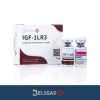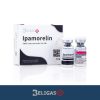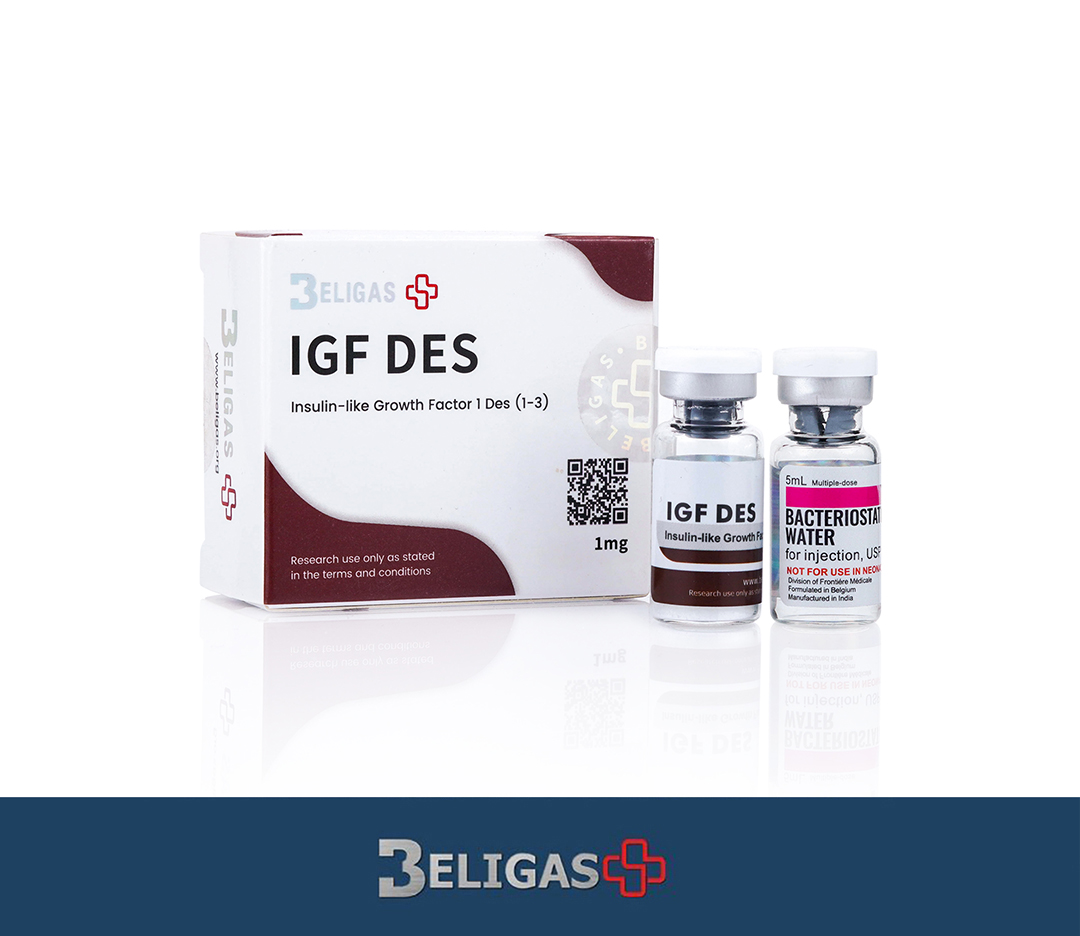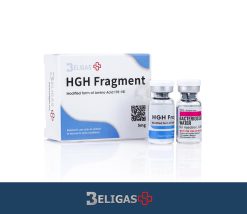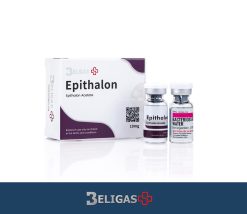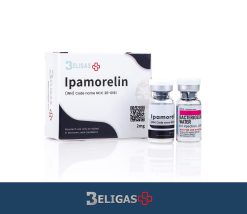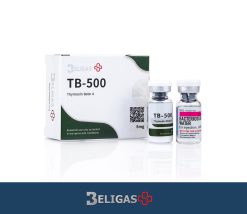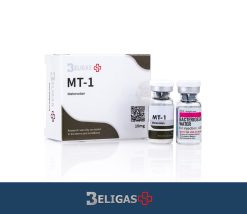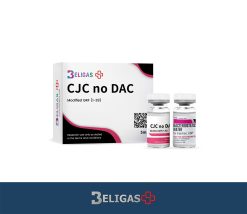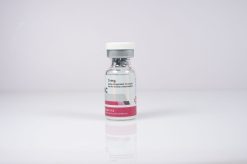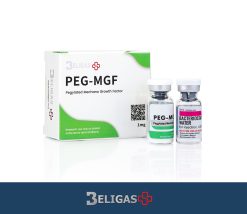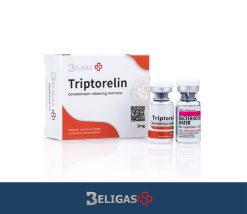IGF DES 1mg
$150.00 Original price was: $150.00.$110.00Current price is: $110.00.
PROFILE
- Raw: IGF DES (Insulin-Like Growth Factor DES)
- Chemical Name: Insulin-like Growth Factor DES 1-3 (amino acids 1-3 of IGF-1)
- Effective Dose (men): 50mcg to 100mcg per injection, 1-2 times daily
- Effective Dose (women): 30mcg to 50mcg per injection, 1-2 times daily
- Active Life: 20-30 minutes (relatively short half-life)
- Detection Time: Up to 24-48 hours
- Anabolic/Androgenic Ratio: Not applicable (IGF DES is a growth factor peptide, not an anabolic steroid)
- Formulation: Powder form (1mg per vial), reconstituted with Bacteriostatic Water
Out of stock
CompareKey Information about IGF DES (1mg):
Primary Use:
IGF DES (Insulin-Like Growth Factor DES) is a synthetic peptide that is derived from the naturally occurring IGF-1 (Insulin-like Growth Factor 1). IGF DES is a modified version of IGF-1, where the first three amino acids of IGF-1 have been removed. This modification significantly enhances its anabolic (muscle-building) properties, especially in terms of local muscle growth at the site of injection.
IGF DES is primarily used by athletes, bodybuilders, and those seeking performance enhancements to stimulate muscle regeneration, growth, and repair. It is considered more potent than regular IGF-1 because of its quicker action, although it has a shorter half-life and is often injected multiple times per day for optimal results.
Mechanism of Action:
IGF DES acts by binding to IGF receptors in muscle tissue, promoting protein synthesis and stimulating muscle cell growth. It has a potent anabolic effect, meaning it enhances the growth and repair of muscle tissue. Unlike other forms of IGF-1, IGF DES is designed to be more localized, meaning it provides enhanced growth at the specific muscle area where it is injected.
IGF DES stimulates the activation of satellite cells, which are essential for muscle repair and regeneration. When used in conjunction with weight training, IGF DES can accelerate recovery and increase the rate of muscle hypertrophy (muscle growth). The peptide promotes nutrient transport and cellular growth, leading to improved muscle density and strength.
Common Uses:
- Muscle Growth & Hypertrophy: IGF DES is commonly used to accelerate muscle growth by stimulating protein synthesis and increasing muscle cell proliferation. It is particularly beneficial for individuals looking to enhance localized muscle growth.
- Muscle Repair & Recovery: IGF DES can be used to speed up muscle recovery after intense workouts, helping reduce the time it takes for muscles to repair and rebuild. This can be beneficial for athletes who train frequently and need faster recovery between sessions.
- Fat Loss: IGF DES can indirectly assist in fat loss by increasing metabolic rate and promoting lean muscle mass, which in turn boosts overall fat burning. Muscle mass is more metabolically active than fat, so increasing muscle mass helps with overall fat loss.
- Joint & Tissue Repair: IGF DES may promote the healing of joints, tendons, and ligaments by enhancing the regeneration of soft tissues. This can be useful for individuals with injuries or those recovering from joint or tendon strains.
Dosing Guidelines:
- Men (Muscle Growth, Recovery, Injury Repair):
- The typical dose for men ranges from 50mcg to 100mcg per injection, and 1-2 injections daily may be required for optimal results. Some users may choose to inject it post-workout to enhance muscle recovery, while others may inject it directly into the target muscle for localized growth.
- Dosing can vary based on the individual’s experience level, goals, and how their body responds to IGF DES.
- Women (Fat Loss, Muscle Growth, Recovery):
- Women generally use a lower dose, typically starting with 30mcg to 50mcg per injection. As with men, the peptide is often injected once or twice daily, with injections typically being made in the evening or after training sessions.
- Women may benefit from local injections to enhance muscle tone, shape, and overall body composition.
Side Effects:
- Hypoglycemia: IGF DES can cause low blood sugar (hypoglycemia), particularly if not dosed properly or if used in conjunction with insulin. Users should monitor their blood sugar levels and adjust their diet as needed.
- Water Retention: Like other growth factors, IGF DES may cause temporary water retention, leading to a slight bloating or puffiness, especially at higher doses.
- Joint Pain or Discomfort: Some users report joint pain or stiffness as a side effect of IGF use, although this is generally rare with IGF DES.
- Headaches: Headaches can occasionally occur, particularly when used in higher doses.
- Injection Site Irritation: Redness, swelling, or irritation at the injection site is common. This is typically mild and resolves after a short period.
- Potential Risk for Cancerous Growth: As with any peptide that stimulates cell growth, long-term or excessive use could, in theory, increase the risk of abnormal cellular growth, although this risk is generally low when used responsibly and in the correct dosage.
Cycle Length:
- Typical Cycle Length: IGF DES is generally used in cycles of 6-8 weeks, followed by a break. Continuous use is not recommended as the body can become desensitized to the effects of the peptide.
- On-Cycle Considerations: During a cycle, users should maintain proper nutrition, particularly adequate protein intake, to maximize the benefits of IGF DES. Additionally, users should pay attention to muscle recovery and training intensity to achieve optimal results.
Post Cycle Therapy (PCT):
- No PCT Required: Since IGF DES is a peptide and not an anabolic steroid, there is no need for post-cycle therapy (PCT). However, after completing a cycle, it is recommended to take a break for 4-6 weeks to allow the body to rest and maintain natural growth hormone balance.
Stacking:
- With SARMs: IGF DES is often stacked with SARMs like Ostarine or LGD-4033 to enhance muscle growth and fat loss. The combination can be very effective for athletes looking to optimize their performance.
- With Peptides for Recovery: Many users stack IGF DES with other growth hormone secretagogues like CJC-1295 or Ipamorelin for enhanced recovery and muscle repair benefits.
- With Insulin: Some advanced users combine IGF DES with insulin to increase the anabolic effect and improve muscle growth. This combination must be done with caution as insulin use can carry risks, particularly regarding blood sugar regulation.
Important Considerations:
- Injection Technique: Proper injection techniques should be followed when administering IGF DES to avoid infection or complications. It is recommended to inject subcutaneously or intramuscularly (directly into the muscle being targeted) for localized growth effects.
- Monitor Blood Sugar: If you are using IGF DES, it is important to monitor blood sugar levels, especially if you are using high doses or stacking with insulin.
- Consult a Healthcare Provider: Before using IGF DES, it is recommended to consult a healthcare provider to ensure that it is safe and appropriate for your individual health needs.
Related products
Peptides
Peptides

